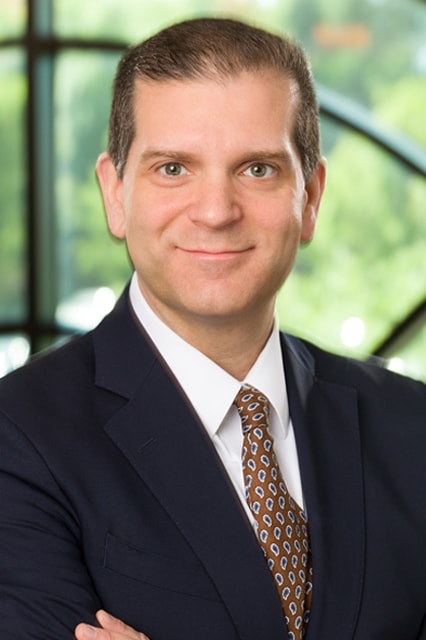Seventh Circuit Affirms Denial of Discharge in Bankruptcy Arising out of Contractor's Defalcation of Trust Funds, Rejecting Contractor's Claimed Ignorance of Applicable Trust Fund Statute
Several states have enacted trust fund acts, requiring that a contractor receiving contract funds in connection with certain construction projects utilize those funds to pay its subcontractors and suppliers. [1] A number of these statutes impose liability upon the officers of the contractor for violation of the statute, which liability may not be dischargeable in bankruptcy pursuant to 11 U.S.C. § 523(a)(4). Up until 2013, there appeared to be a consensus among the courts that contractors, which failed to comply with their state’s trust fund laws and diverted trust funds for non-permissible purposes, could have their debts declared non-dischargeable to the extent of their defalcation of trust funds. [2] A surety that satisfied the claims of unpaid subcontractors and suppliers under the applicable payment bond would stand in the shoes of the unpaid subcontractors and suppliers, as a trust fund beneficiary, pursuant to the doctrine of equitable subrogation, and likewise object to its principal’s discharge to the extent of the defalcation. [3]
In 2013, the United States Supreme Court issued its decision in Bullock v. Bankchampaign, N.A., [4] holding that the term “defalcation”, under the Bankruptcy Code, includes a culpable state of mind requirement involving knowledge of, or gross recklessness in respect to, the improper nature of the fiduciary behavior. The Court stated that where the conduct at issue does not involve bad faith, moral turpitude, or other immoral conduct, the term “defalcation” requires an intentional wrong. The Court included as “intentional” not only conduct that the fiduciary knows is improper but also reckless conduct of the kind that the criminal law often treats as the equivalent. Thus, the Court included reckless conduct of the kind set forth in the Model Penal Code. Where actual knowledge of wrongdoing is lacking, the Court considered conduct to be equivalent to a wrongdoing if the fiduciary “consciously disregards” (or is willfully blind to) “a substantial and unjustifiable risk” that his conduct will turn out to violate a fiduciary duty. That risk “must be of such a nature and degree that, considering the nature and purpose of the actor's conduct and the circumstances known to him, its disregard involves a gross deviation from the standard of conduct that a law-abiding person would observe in the actor's situation.”
The Bullock decision appeared to have raised the bar for a trust fund beneficiary or a subrogated surety to establish that a diversion of trust funds constitutes a “defalcation” under the Bankruptcy Code. In addition to proving that the debtor participated in the diversion of trust funds in violation of the applicable state law, a party seeking to establish defalcation must also demonstrate that the debtor possessed actual knowledge of his wrongdoing or that he was grossly reckless with respect to the improper nature of his fiduciary behavior.
On June 4, 2015, the well-respected Judge Richard Posner, writing for the United States Court of Appeals for the Seventh Circuit, provided some guidance for establishing defalcation in the context of the diversion of trust funds received in connection with a construction contract. In Stoughton Lumber Co., Inc. v. Sveum, [5] the debtor along with his brother co-owned Kegnosa Builders, Inc. (“KBI”), which was a home building company. Stoughton Lumber provided materials and services to KBI and commenced suit to recover monies due and owing for the unpaid materials and services furnished. The debtor entered into a settlement agreement with Stoughton Lumber and then filed for bankruptcy. Stoughton Lumber commenced an adversary proceeding, asserting that the debt created in the settlement agreement was nondischargeable because it arose from fraud or defalcation under 11 U.S.C. § 523(a)(4). Specifically, Stoughton Lumber maintained that the debtor committed theft-by-contractor pursuant to Wisconsin’s trust fund statute [6] by failing to hold, remit or hold in trust for Stoughton Lumber proceeds KBI received from the sale of buildings constructed using Stoughton Lumber materials. Rather than segregating the proceeds from these sales, KBI instead deposited the trust funds into a single bank account, which became part of a general pool used to pay all of its bills. KBI did not pay Stoughton Lumber for materials out of this general pool, in violation of Wisconsin’s trust fund law.
The debtor contended that he committed an innocent mistake by failing to pay Stoughton what KBI owed it because, although he was generally aware of the Wisconsin theft-by-contractor statute, he did not know about its provision for a trust fund. The debtor argued that, because he acted out of ignorance, he did not commit fraud or defalcation and therefore should not have been denied his discharge. The Court rejected the debtor’s contentions, holding that trust fund requirements are generally known in the construction industry and, as such, it is “inconceivable” that a contractor would not know that contract proceeds “have to be held in trust for subcontractors of the builder.” The Court further found that “it’s not just that the [debtor] should have known that [KBI]…was required to hold its revenues from sales of the homes in trust until the firm’s subcontractors, such as Stoughton, were paid; it was a permissible inference that he did know, or at the least that he was playing ostrich—that is, that he suspected that he was violating the law but avoided confirming his suspicion in order to preserve the patina of innocence.” The Court held that the debtor’s conscious disregard or willful blindness of the trust fund statute satisfied the scienter element of defalcation as promulgated by the Supreme Court in Bullock.
The Stoughton Lumber decision appears to establish a bright line rule that experienced contractors and their principals [7] who violate a state trust fund act may not be able to discharge their debt to trust fund beneficiaries (and presumably to their subrogated sureties) by filing for bankruptcy. Although it is not yet clear whether other courts will follow Stoughton Lumber, it may provide the surety with additional leverage to secure the cooperation of the principal and/or its officers and in augmenting potential sources of salvage.
For more information, please contact your Chiesa Shahinian & Giantomasi PC attorney or the authors listed below.
Armen Shahinian
Chair, Fidelity and Surety Group | ashahinian@csglaw.com | ![]() (973) 530-2002
(973) 530-2002
Brian Kantar
Associate | bkantar@csglaw.com | ![]() (973) 530-2112
(973) 530-2112
[1] See, e.g., Colo. Rev. Stat. § 38-22-127; Del. Code Ann. tit. 6 § 3502; Minn. Stat. § 514.02; N.J. Stat. Ann. § 2A:44-148; N.Y. Lien Law § 70, et seq.; Wis. Stat. § 799.02(5).
[2] See, e.g., In re Wright, 266 B.R. 848 (Bankr. E.D. Ark. 2001); In re Smith, 238 B.R. 664 (Bankr. W.D. Ky. 1999); In re Holmes, 117 B.R. 848 (Bankr. D. Md. 1990); In re Jenkins, 110 B.R. 74 (Bankr. M.D. Fla. 1990); In re Englund, 20 B.R. 957 (Bankr. E.D. Mich. 1982); Jasel Building Products Corp. v. Polidoro (In the Matter of Polidoro), 12 B.R. 867 (Bankr. E.D.N.Y. 1981); Carey Lumber Co. v. Bell, 615 F.2d 370 (5th Cir. 1980); In re Romero, 535 F.2d 618 (10th Cir. 1976).
[3] See Old Republic Surety Co. v. Richardson (In re Richardson) 178 B.R. 19 (Bankr. D.C. 1995), aff’d, 193 B.R. 378 (D.D.C. 1995), aff’d, 107 F.3d 923 (D.C. Cir. 1997); cert. den. 522 U.S. 851, 118 S.Ct. 143, 139 L.Ed.2d 90 (1997); see also Western Surety Company v. Daly (In re Daly), 247 B.R. 369 (S.D.N.Y. 2000).
[4] 133 S.Ct. 1754, 185 L.Ed.2d 922 (2013).
[5] --- F.3d ----, 2015 WL 3500237 (7th Cir. June 4, 2015).
[6] Wis. Stat. § 779.02(5).
[7] Wisconsin’s trust fund statute explicitly imputes diversion of trust funds to a corporation’s “officers, directors, members, partners, or agents responsible for the misappropriation.” Wis. Stat. § 779.02(5). Many other states have similarly imputed misappropriation of trust funds to corporate officers. See e.g., Travelers Casualty and Surety Company of America v. Frederick (In re Frederick), 2012 WL 465857 (Bankr. N.D. Ala. 2012); Reliance Ins. Co. v. The Lott Group, Inc., 851 A.2d 766 (N.J. Super. Ct. App. Div. 2004), certif. denied 862 A.2d 57 (N.J. 2004); Jasel Building Products Corp. v. Polidoro (In the Matter of Polidoro), 12 B.R. 867 (Bankr. E.D.N.Y. 1981).


